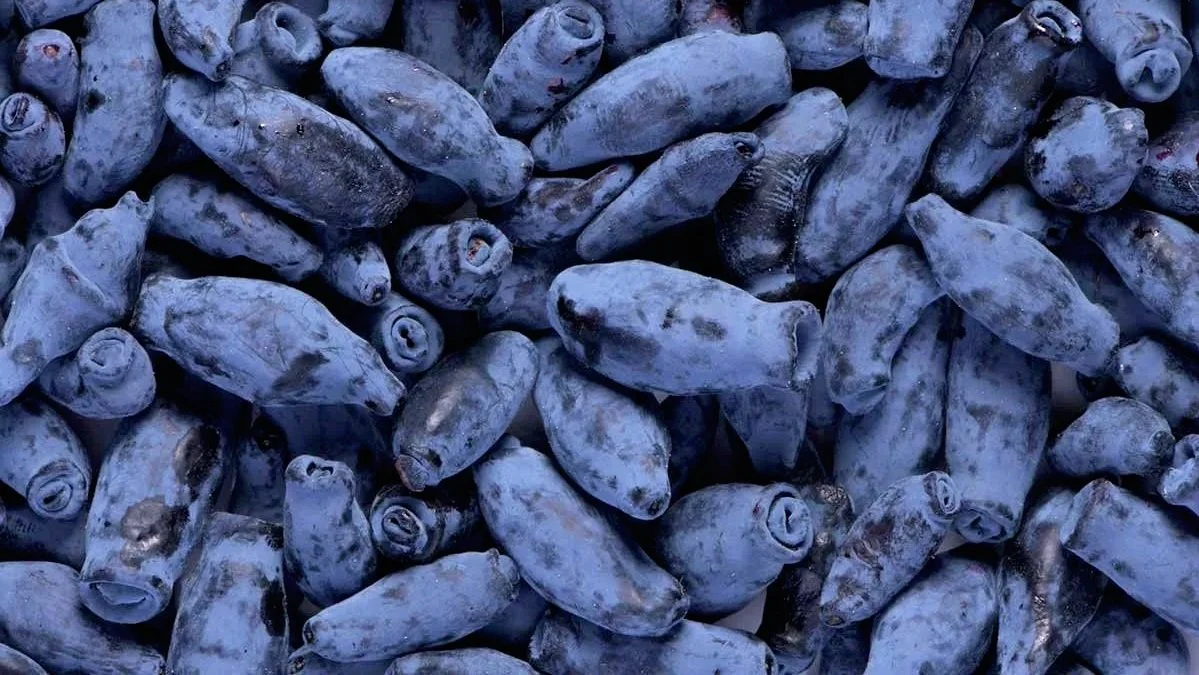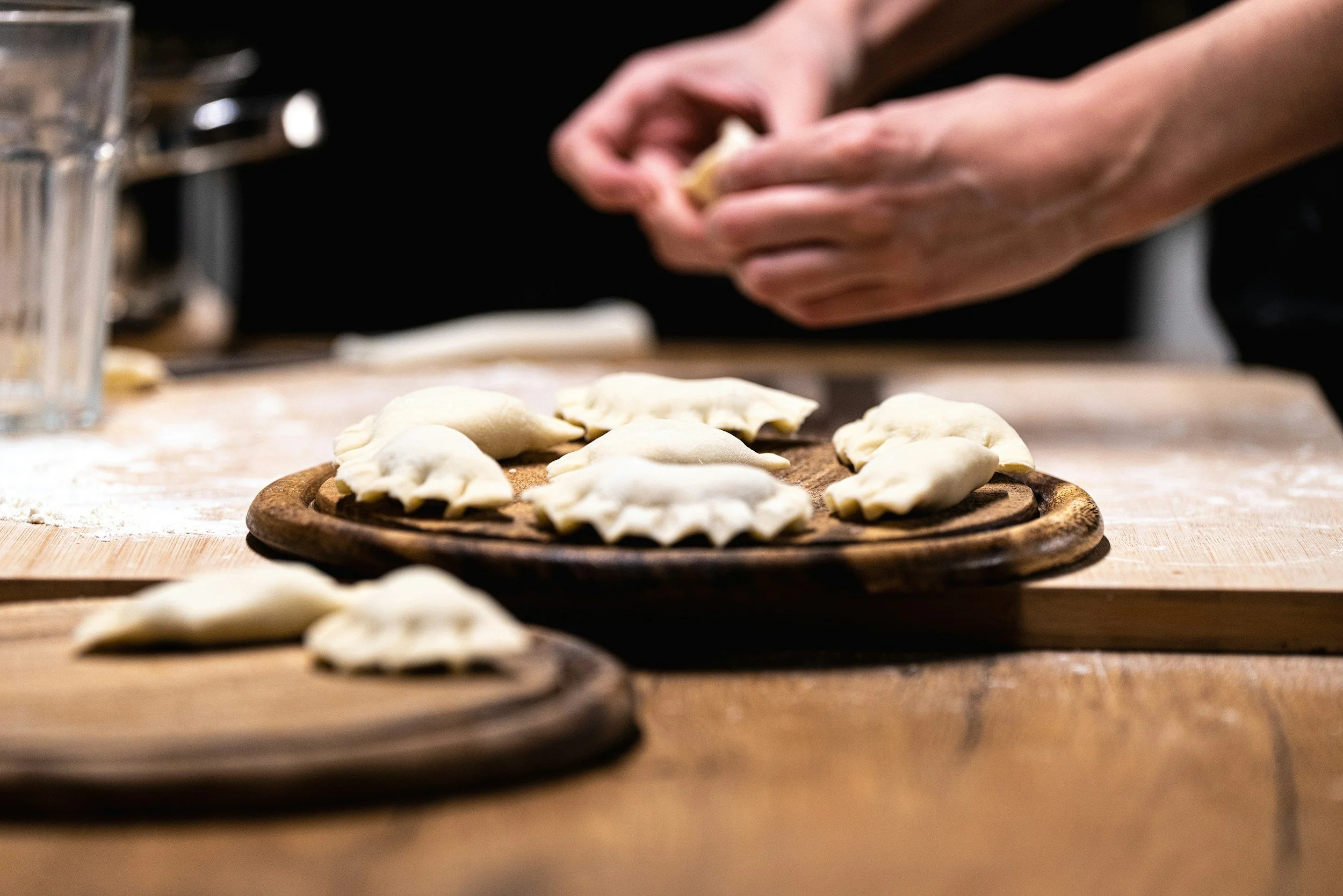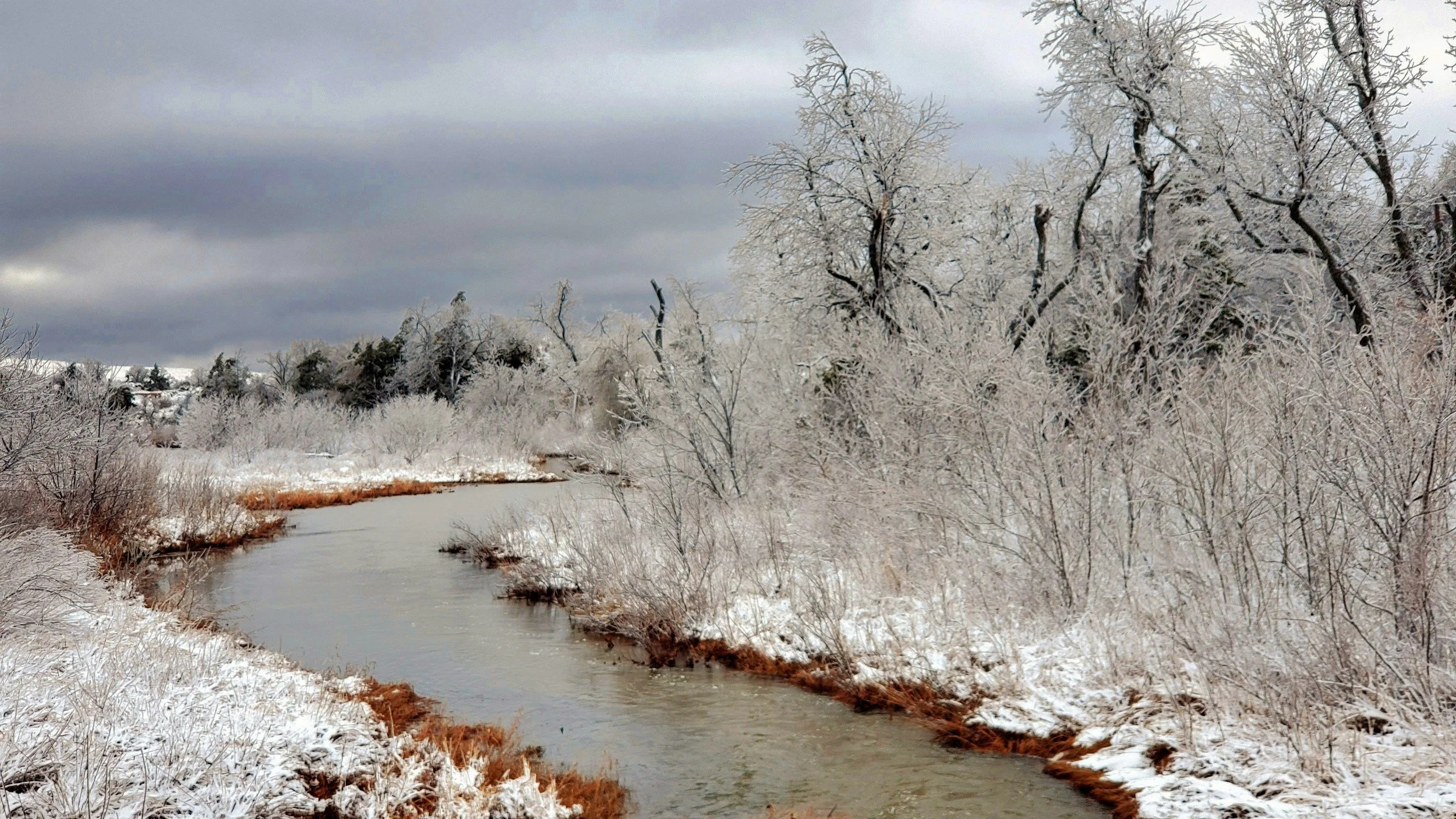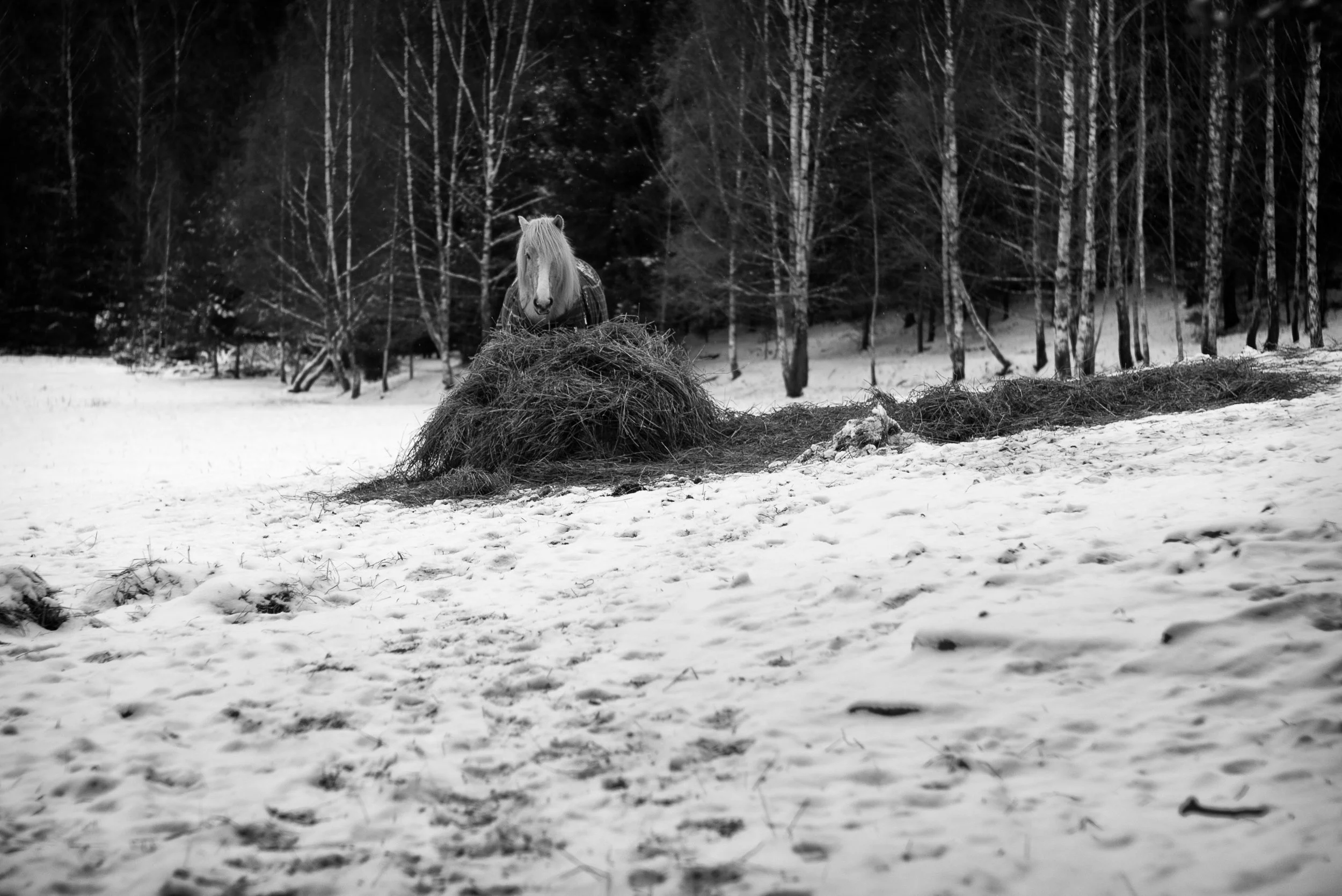Haskaps on the Canadian prairies
Haskaps have long histories across northern regions, including the Canadian prairies. Knowledge of these early berries varies by place, Nation, and seasonal practice, shaped through observation, gathering, and use over time. Indigenous knowledge systems form the foundation of how haskaps have been understood, named, and used within broader food landscapes, a principle reflected in Indigenous-led research and knowledge-sharing initiatives such as the Canadian Indigenous Knowledge Network.
Ukrainian Food Heritage on the Prairies
Ukrainian settlement on the Canadian Prairies spans multiple regions, migration waves, and generations. Families arrived with food knowledge shaped by village traditions, seasonal rhythms, and agricultural practices carried across distance. Over time, these foodways adapted to prairie land, climate, and available resources. Community organizations such as the Ukrainian Canadian Congress document the breadth and continuity of this settlement across Canada.
Indigenous Trade Networks on the Prairies
The Canadian prairies encompasses many Indigenous Nations, each with distinct histories, territories, and systems of trade. For thousands of years, these Nations maintained exchange networks shaped by geography, season, and relationship. What follows is not a comprehensive account of those systems, nor does it attempt to speak for any single Nation or community.
What “Seasonal Eating” Means in Edmonton Winters
Winter in Edmonton is long and decisive. Snow settles early and remains for months. Daylight shortens. Temperatures drop well below freezing, and the ground becomes inaccessible for much of the year. These conditions shape daily life in ways that are both practical and familiar.
Natto: Japan’s Stickiest Superfood and the Science Behind It
Natto is a traditional Japanese food made by fermenting cooked soybeans with Bacillus subtilis var. natto. Sticky, stringy, and famously pungent, it’s a love-it-or-hate-it food — but also one of the world’s most scientifically intriguing ferments.
Eco-Edibles: Lion’s mane (feature)
A fallen birch log in the forest might be wearing what looks like a shaggy white mane. The long, soft spines hang in clusters, almost like strands of hair or coral. This is Lion’s Mane mushroom — one of the most distinctive fungi you can find in the wild and one of the most studied for its potential health benefits.
A comprehensive guide to canning
Home canning is a time-honored way to preserve the bounty of your garden, seasonal fruits, and vegetables, ensuring fresh, flavorful foods all year long. This beginner-friendly guide focuses on safe home canning practices using Bernardin, Canada’s trusted canning brand, and Ball, a leading authority in North American food preservation.
Cider, Shrub, Vinegar, and Tonic: Seasonal Drinks from the Garden to the Glass
Fermented, infused, and preserved beverages have long been central to seasonal eating and sustainable cooking practices.
From the orchard to the kitchen, the methods for turning fruit and herbs into drinks reflect both tradition and innovation. In this article, we focus on four categories: cider, shrub, vinegar, and tonic. Each offers a distinct approach to flavour, preservation, and culinary use, yet they share a common thread: making the most of seasonal ingredients while minimizing waste.
Crabapples in Prairie Food History
Crabapples don’t get much credit in Canadian culinary history. They grow on schoolyard edges and old farm shelterbelts, often dismissed as ornamental or too sour to bother with. Yet for more than a century, these hardy little fruits were a staple of prairie kitchens—and long before settlers planted their first orchards, Indigenous communities were already incorporating crabapples into their seasonal diets. What we see as a decorative afterthought once anchored food traditions across the Prairies
Baker’s Dozen: 13 No-Waste Ingredients You’re Throwing Out
Carrot Tops
Those feathery greens on carrots are often tossed, yet they’re entirely edible and packed with flavour. Historically, carrot tops were simmered into soups or used medicinally in teas.
No-Waste Futures: How Chefs and Home Cooks Are Redefining the Kitchen
Across Canada’s cultural landscape, food traditions have long embraced the principle of using the whole harvest. Indigenous communities developed methods such as drying bison meat into pemmican or smoking fish so that no part of an animal or plant was wasted. Immigrant families, from Ukrainian settlers in Manitoba to Chinese railway workers, also relied on whole-use cooking to stretch limited ingredients.
Scraps, Stems, and Skins: The Science of Cooking What We Throw Away
Every year, Canadians throw out millions of tonnes of food, and a surprising portion of it isn’t spoiled—it’s the skins, stems, and leaves we never even considered edible. Carrot tops go straight to the compost bin, beet greens are lopped off at the market stall, and potato skins are peeled and discarded without a second thought.
Preservation as Protest: Canning, Pickling, and Fermenting in Hard Times
Preservation has always been more than food science — it was survival strategy, cultural safeguard, and sometimes an act of quiet rebellion. Before refrigeration, communities relied on salting, drying, fermenting, and storing underground to extend the life of seasonal harvests. These methods not only ensured food security but also created culinary traditions that shaped identities. To preserve was to prepare for scarcity, to protect a household, and to assert resilience in the face of unpredictability.
From Broth to Bread Pudding: Turning Scraps into Classic Recipes
Every kitchen has scraps. A carrot peel, a crust of bread, a bone left behind after roasting a chicken. Today many of these end up in the bin, but for much of human history they were the starting point of the next meal. What we think of as waste has long been the foundation of cuisine, shaping recipes that endured not because they were second-rate, but because they were satisfying, flavourful, and essential.
Nose-to-Tail and Root-to-Stem: Ancestral Lessons in No-Waste Cooking
For most of human history, food waste was nearly impossible to imagine. Every bite represented labour, risk, and reverence. A slaughtered animal carried weeks of preparation and the responsibility of honouring its life. A harvest gathered from the soil embodied the turning of seasons and the work of many hands. Throwing away edible parts meant discarding not only nourishment but also the effort and meaning tied to it.
Waste Not: An Introduction to Cooking with What We Throw Away
Scraps, stems, skins, and seeds — these so-called leftovers have always held nutritional and cultural value, and today they are being rediscovered as essential tools in the fight against food waste.
Grandma’s Wartime Kitchen: Old-School Sustainability from the Home Front
The kitchen table was as much a part of Canada’s war effort as the factory floor. Picture it: a narrow 1940s kitchen with a wood or coal stove radiating heat, ration books fanned open beside a jar of sugar no bigger than a teacup, rows of gleaming preserves stacked like sentries along the counter, and two fresh loaves of bread cooling under clean tea towels. The air carried the mingled scent of yeast, stewed fruit, and something savoury stretching its way into tomorrow’s supper.
The Rise of Indigenous Superfoods: How Canada’s Oldest Ingredients Are Inspiring a New Food Movement
Canada’s food history is rooted in ingredients that grew, swam, or roamed freely across this land. Long before refined wheat and industrial farming arrived, Indigenous communities sustained themselves with nutrient-rich staples harvested in tune with seasonal cycles. These were the original examples of sustainable cooking and ancestral cooking methods — systems where food, ecology, and community were inseparable.
Wild, Weedy, and In Your Yard: Late Summer Foraging
Late summer in Canada is a season of contrasts. The days are still warm, but evenings carry the first hints of autumn.
Preserve the Season: Storing Your Late Summer Forage
Late August in Canada is a moment of abundance. The hedgerows are heavy with berries, gardens are brimming with herbs, and meadows hum with pollinators visiting the last of the wildflowers.





















